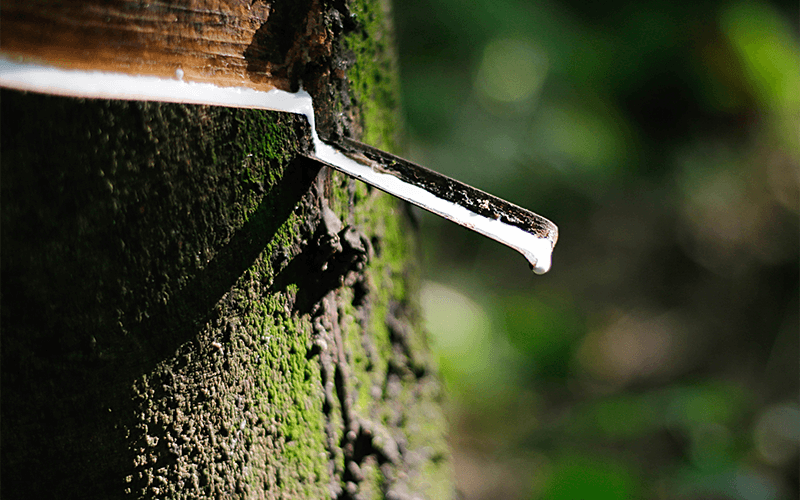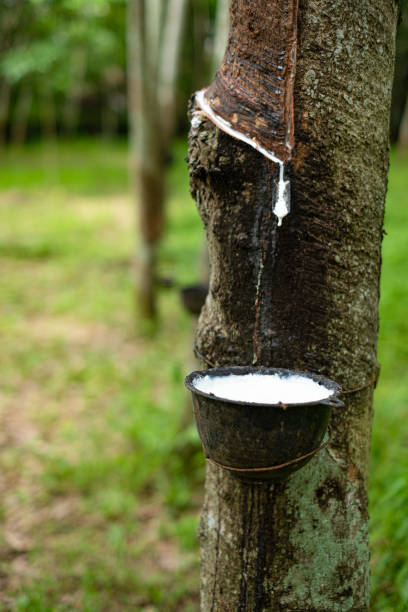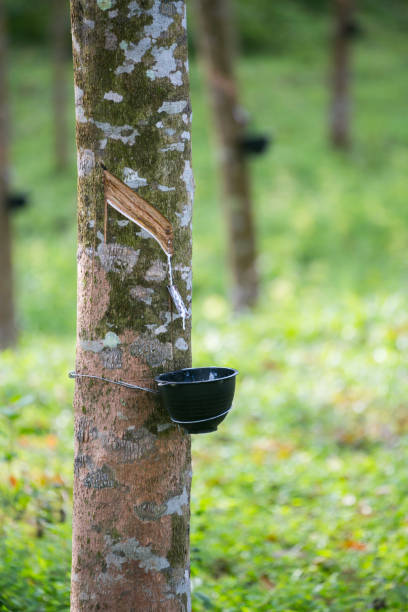The Challenge of Confronting Complexity at National Scale
India’s natural rubber supply chain is massive but highly complex with multiple layers. Despite being one of the world’s largest producers, India’s rubber supply chain lacked a unified structure. The enforcement of EU deforestation regulations mandating deforestationfree, plotlevel traceability for every shipment exposed longstanding gaps in the system

The Challenge of Confronting Complexity at National Scale

Fragmented Farmer Network :
Over 1.2 million smallholders supply rubber through multiple layers of dealers and processors, making end‑to‑end tracking extremely complex.
Unsustainable Compliance Burden :
Individually managing mapping, verification, and documentation was financially unviable and operationally challenging for farmers, dealers, smaller processors and MSMEs.
Reliable Data Collection :
Securing accurate farmer data and building trust around its collection and storage was challenging in a sector with low digital adoption.
Redundant Processes:
Lack of coordination meant exporters and processors would duplicate mapping and reporting efforts, driving up costs and creating inconsistent data across the chain.
Risk to Market Access:
Inability to prove traceability threatened shipment approvals, exposed exporters to penalties up to 4%, and risked exclusion from EU markets



The Solution A National Framework for Unified Traceability
To overcome fragmentation and prepare the industry for stringent global regulations, the Rubber Board of India, in partnership with TRST01, launched the Indian Sustainable Natural Rubber (iSNR) initiative — the world’s first nation-wide traceability and compliance system for natural rubber
Replaces scattered, company-led compliance with one government-supervised digital system ensuring uniform standards, eliminating redundant efforts, and drastically reducing costs for supply chain stakeholders.
Ensures farmers and small stakeholders (small holder farmers, dealers, processors and manufacturers) can participate without bearing compliance costs, driving inclusive adoption across the value chain.
Multi-tier validation ensures accuracy, with all information stored centrally under Rubber Board oversight for credibility and data privacy
From plot mapping to batch-level segregation, every step is digitally recorded. By the time rubber reaches exporters, Due Diligence Statements (DDS) and other compliance documents are automatically generated, ready for EU submission.
Positions India’s rubber sector to meet not just EU requirements but emerging sustainability standards in other global markets.
Redefining India’s Place in Global Rubber Trade
The iSNR initiative marks a pivotal shift for India’s natural rubber sector from fragmented operations to a unified, transparent, and farmer-inclusive supply chain. By embedding traceability at the source and eliminating barriers for smallholders, it ensures that compliance is not just met but shared equitably across the value chain.
This is more than meeting EU deforestation rules; it is about preparing India for the future of global trade. As Bharat Sustainable Natural Rubber (BSNR) framework evolves, it sets a new benchmark for sustainability combining environmental responsibility, social equity, and market competitiveness. In doing so, we’re not only safeguarding its market access but positioning India as a leader in sustainable natural rubber on the global stage.